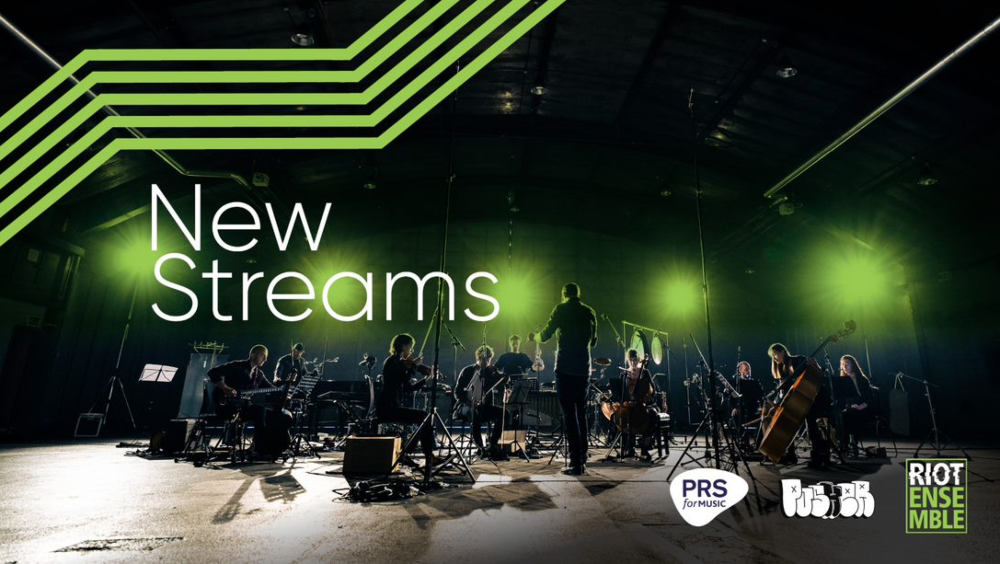Tune Up is a must-attend event for media composers, which shares industry insights and tips for success from some of the leading lights in the game.
This year’s edition, which took place at the British Film Institute in London last week, featured composers Poppy Ackroyd, Philip Sheppard, Mary Scully and Alex Baranowski.
They were joined by Simon James, head of production music at PRS for Music/MCPS and Dave Newton, PRS for Music’s media account manager.
We were on hand to glean their wise words. Dig in to learn our top takeaways…
On navigating a tough industry…
Alex: In the world of advertising, you put your heart and soul into something and then it gets cut or chucked out – which can be soul-destroying. There are real highs and lows in this industry and you’ve got to learn how to ride them out. The way music is treated can be frustrating. It’s usually the last thing to be considered in the worlds of film, television and advertising.
On the writing process…
Philip: Often your fleeting, fast idea may be the best version. It’ll have the most honesty. There’s a point at which you create your own subconscious taste.
Alex: Learn what works for you and find something that really fits with the visuals. Also, don’t liken yourself to others: never compare your beginning with someone else’s middle.
On repeating yourself…
Philip: I don’t like copying my previous sound. The moment you start sounding like yourself, you’re fixed. Audible habits put you in danger of painting yourself into a dark corner. Psychologically, I don’t like the idea of that.
On overcoming writer’s block…
Philip: Challenge yourself by turning the creative process into a game. Take a phrase someone says and transfer it to a harmony. Or take the last digits of a phone number: if those were notes on a modal scale, it could loop… and then you’ve started something. Gamifying writing can make things exciting and increase the adrenaline in a project.
Another thing to try is restricting the number of notes you use, or don’t allow yourself to use recurring notes.
Write the obvious things and then remove them. A quote I heard once, which resonated with me, was, ‘Draft really ugly and edit beautifully’.
On collaborating with others…
Philip: If you’re having a problem with the composition process, never ever relay that up the chain. Your job is to make life easier. Absorb things, deal with them and never send an angry 3am email.
Also, it’s a good idea to properly mark up your project; print a graphic score and give it to the director. It’s really helpful and has always worked for me.
On making sure you earn royalties from your work…
Dave: Get in with PCAM [the industry body for composers of advertising music] - they have useful tools and information to help you get the most from your work.
Simon: When you discuss your rights, remember it’s a legal engagement. Be sure to read all the documents you’re asked to sign. Look at the per-minute royalty rates on our website – it’s a good way to check the value of your work.
Also, learn to be disciplined with your data. Always correctly register your work with us and ensure you provide the correct data to broadcasters too – that includes the ISWC numbers and tune codes. This makes matching works and recordings much easier. Remember, if you don’t put the right data in, nothing is going to come out the other end.
Dave: Check unmatched usages on our website. This is the list of works we can’t identify due to a lack of data. You can also check if cue sheets have been reported to us and ensure the data in it is correct via the PRS website.
This year’s edition, which took place at the British Film Institute in London last week, featured composers Poppy Ackroyd, Philip Sheppard, Mary Scully and Alex Baranowski.
They were joined by Simon James, head of production music at PRS for Music/MCPS and Dave Newton, PRS for Music’s media account manager.
We were on hand to glean their wise words. Dig in to learn our top takeaways…
On navigating a tough industry…
Alex: In the world of advertising, you put your heart and soul into something and then it gets cut or chucked out – which can be soul-destroying. There are real highs and lows in this industry and you’ve got to learn how to ride them out. The way music is treated can be frustrating. It’s usually the last thing to be considered in the worlds of film, television and advertising.
On the writing process…
Philip: Often your fleeting, fast idea may be the best version. It’ll have the most honesty. There’s a point at which you create your own subconscious taste.
Alex: Learn what works for you and find something that really fits with the visuals. Also, don’t liken yourself to others: never compare your beginning with someone else’s middle.
On repeating yourself…
Philip: I don’t like copying my previous sound. The moment you start sounding like yourself, you’re fixed. Audible habits put you in danger of painting yourself into a dark corner. Psychologically, I don’t like the idea of that.
On overcoming writer’s block…
Philip: Challenge yourself by turning the creative process into a game. Take a phrase someone says and transfer it to a harmony. Or take the last digits of a phone number: if those were notes on a modal scale, it could loop… and then you’ve started something. Gamifying writing can make things exciting and increase the adrenaline in a project.
Another thing to try is restricting the number of notes you use, or don’t allow yourself to use recurring notes.
Write the obvious things and then remove them. A quote I heard once, which resonated with me, was, ‘Draft really ugly and edit beautifully’.
On collaborating with others…
Philip: If you’re having a problem with the composition process, never ever relay that up the chain. Your job is to make life easier. Absorb things, deal with them and never send an angry 3am email.
Also, it’s a good idea to properly mark up your project; print a graphic score and give it to the director. It’s really helpful and has always worked for me.
On making sure you earn royalties from your work…
Dave: Get in with PCAM [the industry body for composers of advertising music] - they have useful tools and information to help you get the most from your work.
Simon: When you discuss your rights, remember it’s a legal engagement. Be sure to read all the documents you’re asked to sign. Look at the per-minute royalty rates on our website – it’s a good way to check the value of your work.
Also, learn to be disciplined with your data. Always correctly register your work with us and ensure you provide the correct data to broadcasters too – that includes the ISWC numbers and tune codes. This makes matching works and recordings much easier. Remember, if you don’t put the right data in, nothing is going to come out the other end.
Dave: Check unmatched usages on our website. This is the list of works we can’t identify due to a lack of data. You can also check if cue sheets have been reported to us and ensure the data in it is correct via the PRS website.





